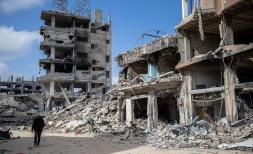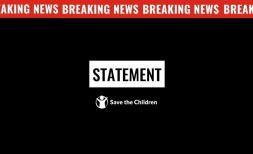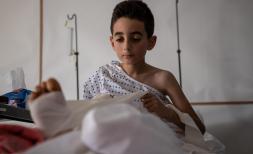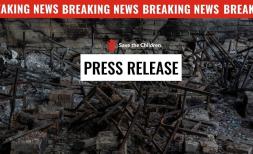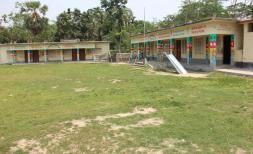Yemen: Coronavirus outbreak fanned by soaring PPE and oxygen prices
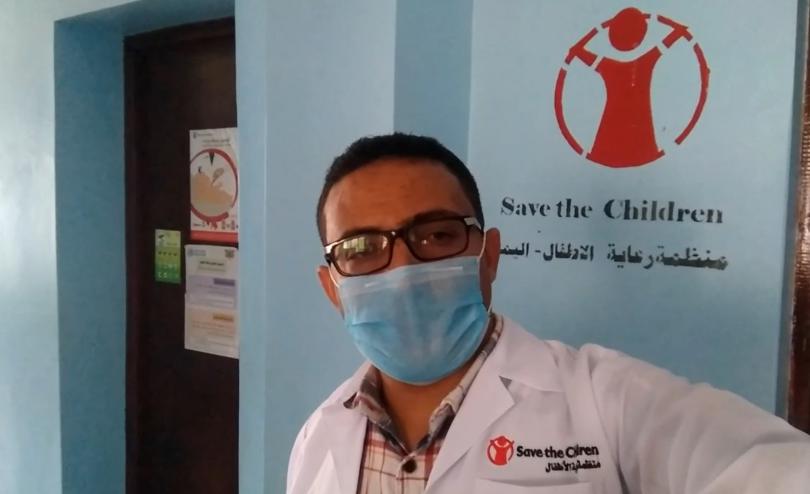
The price of disposable face masks has increased thirtyfold: Save the Children.
The costs of life saving items such as personal protective equipment, disposable masks, and oxygen cylinders is skyrocketing in Yemen, leaving millions of people exposed to the Coronavirus with little means to protect themselves or get treated against the rapid spread of the deadly virus in the country.
According to Save the Children teams on the ground, the price of disposable face masks has increased from around 10 YR (almost 0.02 USD) per unit to 300 YR (0.5 USD) - a thirtyfold increase across the country. As for a professional N95 mask, the price can go up to 5,000 YR (around 8 USD)[1].
This makes the procurement of these life-saving items a challenge not only for individuals but also for aid organisations. In a country where salaries of health workers vary from 83 USD to 250 USD monthly, and the average income is around 120 USD per month, a disposable face mask is becoming a luxury item.
Many health facilities have reported staff not showing up to work for lack of PPE, and some hospitals even closed down as they were facing a shortage of staff. This new financial challenge might push more health workers to stop working, and health facilities to turn patients away[2].
Dr. Masar Khalid, Save the Children’s Health and Nutrition Officer in Aden, said:
"There was panic in public hospitals that weren't ready to receive this [high] number of suspected COVID-19 cases, as well as dealing with different diseases, while not having proper PPE for health workers."
Yahia, 43, lives in Sanaa with his wife and four children:
"I used to have a good income as a civil servant but I haven’t been paid for three years now. So, I had to work as day laborer in the local market to provide for my family.
“They ask us to stay home and avoid people but this is not possible for me. I still have to go every day to the busy market I have one mask that I bought A few weeks ago and I wear it every day whilst my kids don’t wear anything. We have one [bar of] soap at home and we try to use it as wisely and necessary as possible, we cannot afford more expenses. For water, my children go twice a day to queue and fetch water from the only tank in our neighborhood."
As for empty oxygen cylinders, in Aden, the price per unit went up from 50 USD pre-outbreak to 160 USD currently. Many community clinics and health facilities are unable to afford new cylinders. Nationwide, there are less than 12,000 cylinders available for a population of nearly 30 million.[3]
The cylinders in use need to be filled regularly, with the refilling cost having doubled from 1,000 YR (1.6 USD) to between 1,500 to 2,000 YR (2.4 to 3.3 USD).
The oxygen re-filling pump in one of the two hospitals in Aden exploded recently, as it needed maintenance, straining this vital resource even further. According to the UN[4], 42 patients who were at the hospital when the explosion happened require oxygen to stay alive. In general, the hospital needs between 50-60 oxygen cylinders a day. And though it’s now operational again, any further disruption could be life threatening to several patients.
Xavier Joubert, Save the Children country director, said:
“Masks were already in short supply in most parts of Yemen, despite massive efforts from the United Nations agencies to cover the gaps as soon as possible. With prices shooting up, it becomes impossible for many Yemenis to buy them: civilians can’t afford them and aid organizations have a hard time procuring them. If the simplest, most basic prevention tool that is so urgently needed in crowded markets and urban areas and that can save lives[5] is not available, there’s no telling to how fast and far the virus can spread.”
Since border closures have been tightened in Yemen to stop the spread of the Coronavirus, quarantine measures required in sea ports at anchorage have reduced humanitarian cargo by two thirds at key points of entry[6]. For Yemen, this means personal protective equipment (PPE) as well as medical supplies cannot be delivered in a timely manner.
Save the Children is calling on authorities in Yemen to accelerate custom clearance for PPE and medical supplies, as well as staff rotation into the country. After the international pledging conference that was held on June 2, and promised 1.35 billion dollars to the aid response, we also call on donors to disburse this funding urgently. But access and money won’t have the needed impact if the conflict continues, and calls to abide by a ceasefire go unanswered by warring parties.
To support Save the Children’s global COVID-19 emergency appeal, click here.
Multimedia content available here.
Notes to Editors:
- Save the Children supports 4 of the 38 Covid19 treatment units in Yemen. We provide equipment and training.
- As of May 30, there are 314 confirmed Covid19 cases in Yemen including 78 deaths, according to the World Health Organization. But the actual numbers might be significantly higher as testing is still extremely limited in the country, and the health sector is unable to track the outbreak.
[2]The Extended HRP 2020 from May 2020 states that: ‘As of 27 May, COVID-19 is spreading rapidly across Yemen. Health facilities are already overwhelmed and many are being forced to turn patients away’
[5] See WHO guidelines on page 2, point 2: https://www.who.int/publications-detail/advice-on-the-use-of-masks-in-the-community-during-home-care-and-in-healthcare-settings-in-the-context-of-the-novel-coronavirus-(2019-ncov)-outbreak
[6] Access Working Group data.
Spokespeople are available. For more information or to arrange an interview contact:
Randa Ghazy
r.ghazy@savethechildren.org.uk
+44 74 29980 655 (London)
Out-of-hours
Media@savethechildren.org.uk
+44 7831 650409 (London)
